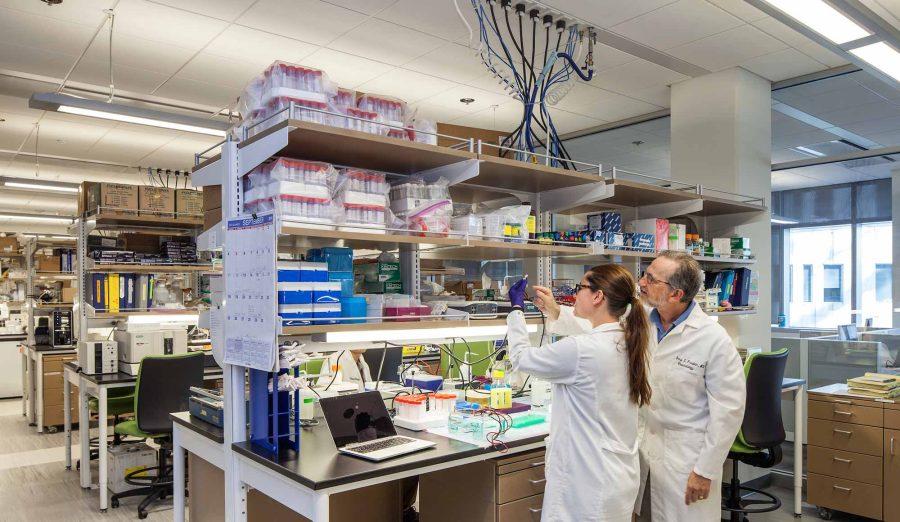Two UC San Diego bioenergy projects have been selected by the United States Department of Energy to get funding for their research. Receiving $4 million of funding in total for their three-year program, these researchers will work to develop bio-based renewable plastic.
The Plastics Innovation Challenge, initiated by the U.S. Department of Energy, provides funding opportunities to accelerate innovation in reducing plastic waste in oceans and landfills. As principal investigators of the two individual projects, UCSD Professor of Chemistry and Biochemistry Michael Burkart and Professor of Nanoengineering Jon Pokorski will each use the funding for their continuing research on biodegradable polyurethane and thermoplastic polyurethanes, respectively.
Polyurethane is a durable plastic material with wide applications such as coating other products, furniture and footwear. It is made from reacting organic compound polyol with diisocyanates, both of which are derived from crude oil, a type of nonrenewable fossil fuel formed by decomposition of ancient organic matter.
Burkart was awarded $2 million for his project on making biodegradable polyurethane products from environmentally friendly algae.
“It’s interesting that when polyurethane was first discovered back in the 1930s, it was biodegradable, but the idea was to make it last forever, so they engineered out the biopolymers to make the material long lasting,” Burkart said. “We’re revisiting and picking up [the old idea] back again.”
Along with colleagues Dr. Skip Pomeroy and Dr. Stephen Mayfield, Burkart has spent the past years making commercial products such as flip-flop footwear, surfboards and athletic shoe midsoles up to 50 percent biodegradable. Published in September, the team’s research discovered that polyurethane foams could be formed with the polyol in algae oil.
The DOE grant will support the next stage of research, which is to develop bio-based diisocyanates, hence increasing the renewability of the final product. Burkar’s lab utilized the technique of flow chemistry to synthesize diisocyanates in-flow from algae-derived organic matter. Their method was published in May.
“Our goal is to get the bio-content greater than 80 percent,” Burkart said. “We are really excited about that.”
The research team will also identify the breakdown products and evaluate their toxicity after the bio-based polyurethane foams decompose in a natural environment, such as a backyard compost pile.
UCSD Professor of Nanoengineering Jon Pokorski, on the other hand, was awarded to work with degradable thermoplastic polyurethanes. Pokorski’s research focuses on incorporating microbial spores to promote TPU biodegradation at the end of its lifecycle. The activated spores will degrade both polyether- and polyester-based TPUs and make it eco-friendly.
“PUs don’t really degrade. That’s what the spores are for,” Pokorski said.“We are planning to bioengineer the spores to use TPU as a food source.”
Pokorski will evaluate the stability and activity of the bio-integrated TPU, while his colleague and co-principal investigator, Dr. Adam Feist, research scientist at UCSD, will further optimize the non-pathogenic microbial strain for the degradation process. With the combined efforts of researchers at University of Georgia and chemical company BASF, the team targets to reach greater than 90% biodegradability.
“We knew that spores could survive polymer processing and we also know that spores are able to provide a bit of biodegradation” Pokorski said. “Here we are using that knowledge and expanding on it to make materials that are able to be composted, where that capability has never existed before.”
The two researchers are members of the recently launched Institute for Materials Discovery and Design at UCSD, whose mission is to apply advanced materials to achieve higher sustainability.
This article was edited on November 19, 2020 at 12:50 PM in order to clarify some details and add in comments from Pokorski.
Photo courtesy of Rudolph and Sletten.














